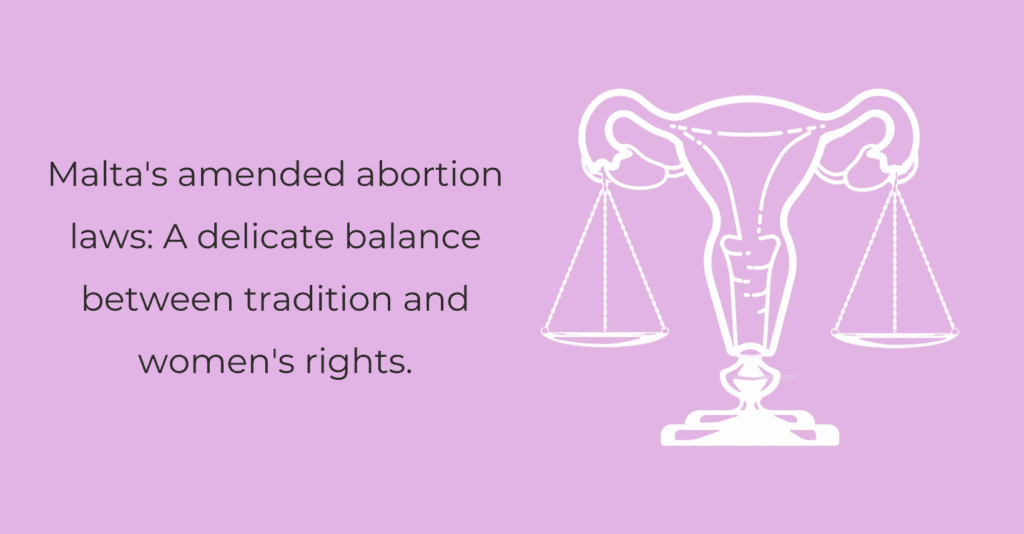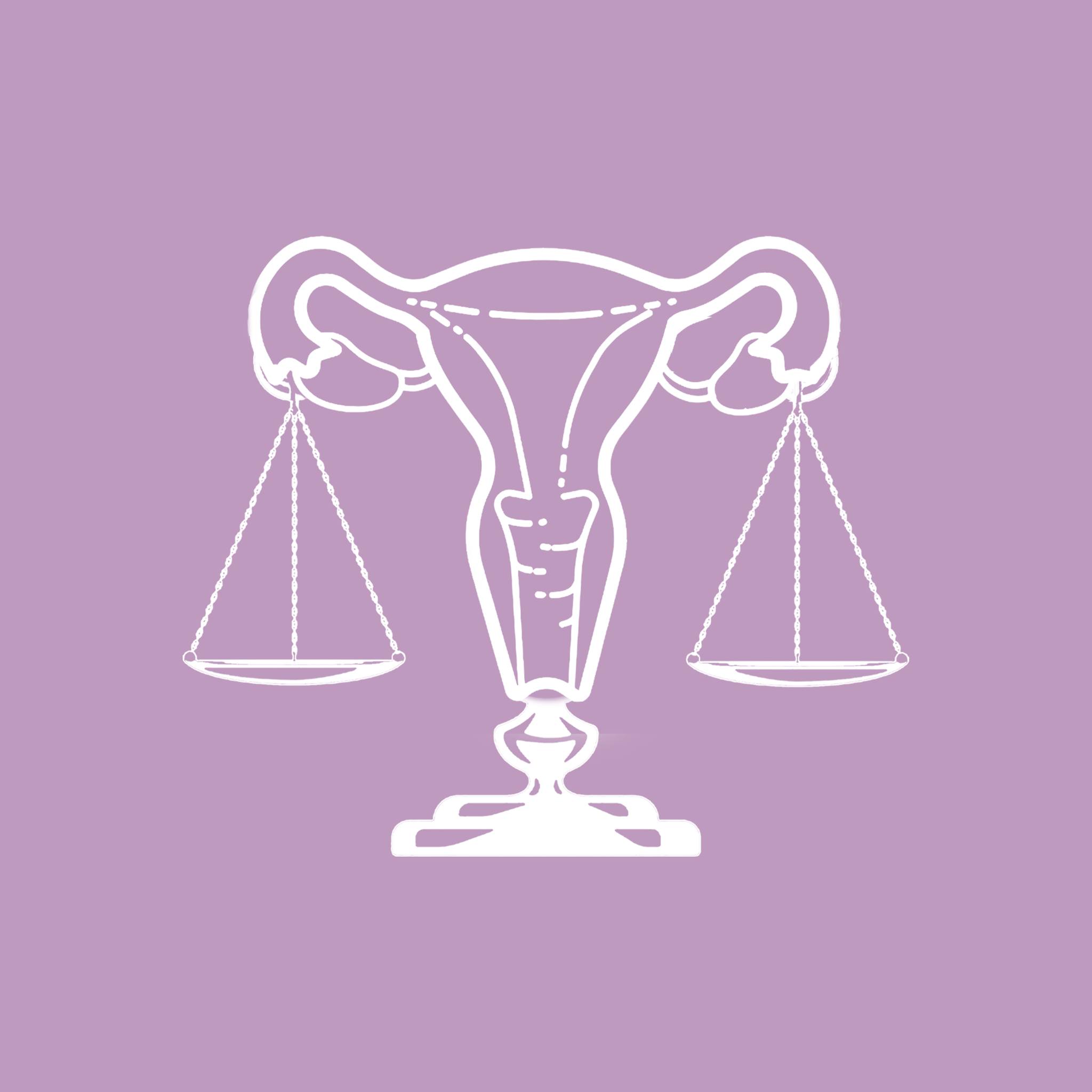
In contrast to the majority of European countries that have liberalised their abortion laws, allowing terminations within the first 12-14 weeks of pregnancy, Malta maintains exceptionally strict legislation. Abortions are only permitted in cases where the mother’s life is at grave risk, as outlined in the 2023 amendment.
Global Context: A Comparative Overview
Meanwhile, countries like France have taken proactive steps to safeguard reproductive rights, recently embedding the right to abortion in their constitution as a response to the erosion of such rights in the United States, particularly following the overturning of Roe v. Wade. This has sent a strong message across the world and particularly towards its European partners amid a sharp rise in restrictive policies and laws on abortion across the continent.
Though the UK and Spain have also made great strides in enhancing accessibility to abortion services by implementing various measures, challenges persist in countries like Italy, where some doctors refuse to perform abortions on moral or religious grounds, and Poland, where abortion was effectively banned in early 2021, save for cases of rape, incest, or threat to the mother’s life, prompting widespread protests. The situation in Poland is subject to imminent reversal though legal rollbacks in Hungary and Slovakia, for example, abortion access tightened and are now an ever-present and grim reality. [1] Against this backdrop, Malta’s stringent laws continue to place it among the most restrictive in terms of abortion access across Europe.
The 2023 Amendment: A Closer Look
This article delves into the recent legal amendments to the Criminal Code’s Title VIII, Subtitle VII – Of Abortion – to comprehensively understand the legislative framework.
241. (1) Whosoever, by any food, drink, medicine, or by violence, or by any other means whatsoever, shall cause the miscarriage of any woman with child, whether the woman be consenting or not, shall, on conviction, be liable to imprisonment for a term from eighteen months to three years.
(2) The same punishment shall be awarded against any woman who shall procure her own miscarriage, or who shall have consented to the use of the means by which the miscarriage is procured.
Historical Perspective and Criminalisation
Before abortion’s criminalisation in 1981, both political parties were against introducing abortion. Nonetheless, in a 1980 speech, Dom Mintoff, Prime Minister of Malta at the time, made a strong argument for the right of abortion to be left in the hands of the women the situation impacts. He pointed to the UK’s de facto legalisation in 1967, crediting women’s activism for the change. Mintoff was not pushing for the introduction of abortion but rather argued against the criminalisation of women who get abortions. [2]
Abortion is criminalised by the above article, which has remained unchanged since 1981. It applies only within the Maltese territory, so if a Maltese woman or a woman who lives in Malta carries out an abortion abroad, she shall not face disciplinary action upon her return to Malta.
242. If the means used shall cause the death of the woman or shall cause a serious injury to her person, whether the miscarriage has taken place or not, the offender shall, on conviction, be liable to the punishment applicable to wilful homicide or wilful bodily harm, diminished by one to three degrees.
243. Any physician, surgeon, obstetrician, or apothecary, who shall have knowingly prescribed or administered the means whereby the miscarriage is procured, shall, on conviction, be liable to imprisonment for a term from eighteen months to four years, and to perpetual interdiction from the exercise of his profession.
Legal Implications for Medical Professionals
The above articles criminalise any medical professional from knowingly prescribing or administering the means for a miscarriage, with imprisonment of up to four years and perpetual removal from the medical profession.
243A. Whosoever, through imprudence, carelessness, unskillfulness in his art or profession, or non-observance of regulations, causes the miscarriage of a woman with child, shall, on conviction, be liable to imprisonment for a term not exceeding six months or to a fine (multa) not exceeding two thousand and three hundred and twenty-nine euro and thirty-seven cents (€2,329.37). [3]
A Fork in the Road: Catalysing Change through Legal Challenges
An incident involving an American couple, Andrea Prudente and Jay Weeldreyer, was the catalyst behind the amendments in 2023. Ms Prudente, who was enjoying a “babymoon” holiday in Malta with Weeldreyer, experienced an incomplete miscarriage when her waters broke prematurely. Unable to execute the necessary procedure to remove the remaining foetal tissue as Ms Prudente was at risk of a life-threatening infection due to Malta’s outdated abortion law, she travelled to Spain for the procedure. The Constitutional Case against the State Advocate, the Health Minister and the Parliamentary Secretary for Reforms and Equality is still ongoing at the time of writing. [4]
The Legal Debate and Amendments
Following a legal challenge against the Maltese Government, the protracted debate between pro-life and pro-choice groups resulted in the amendment of Article 243 of the Criminal Code.
An earlier draft version of the 2023 amendment (Bill 28) would have legalised abortion in situations of serious risk to the health of a pregnant woman, in what would have been an essential step toward greater protections in Malta for women’s human rights. However, last-minute amendments now curtail legal abortion access solely to situations where a pregnant woman’s life is at risk, continuing to prohibit abortion in all other circumstances. [5]
The Evolution of Bill 28
During the second reading, the original Bill 28 (Article 243B) read as follows:
243B. “No offence under sub-article (2) of article 241 or article 243 shall be committed when the termination of a pregnancy results from a medical intervention aimed at protecting the health of a pregnant women suffering from a medical complication which may put her life at immediate risk or her health in grave jeopardy.” [6]
The eventual water-down article reads as follows:
243B. No offence under sub-article (2) of article 241 or article 243 shall be committed when the cessation of a pregnancy or damage to the foetus results from a medical intervention carried out for the purpose of saving the life and protecting the health of a pregnant woman suffering from a medical complication which may put her life at immediate risk or her health in grave jeopardy which may lead to death:
Provided that the exemption from criminal responsibility by virtue of this article shall apply only when after having considered the medical practices current in Malta circumstances of necessity still subsist which dictate that the medical intervention be carried out and if the following conditions are fulfilled:
(a) in the case of a pregnant woman suffering from a medical complication which may put her life at immediate risk, the medical intervention is done when in the reasonable opinion of the medical practitioner carrying out the intervention the foetus has not reached the period of viability; or
(b)in the case of a medical intervention carried out due to a medical complication which places the health of a pregnant woman in grave jeopardy which may lead to death:
(i) that in the reasonable opinion of the medical team the foetus has not reached the period of viability and cannot be delivered according to the standards of the medical profession; and
(ii) that the medical intervention is carried out only after the medical team has confirmed the necessity of the intervention; and
(iii) that the medical intervention is carried out in a licensed hospital having the facilities required for the necessary medical intervention to be carried out;
(iii)for the purposes of this article:
“medical team” means three (3) medical practitioners registered as specialists with the Medical Council under the Health Care Professions Act, two (2) of whom being obstetricians or gynaecologists, one (1) of whom being the obstetrician who carries out the intervention, and the third medical practitioner being a specialist in the condition from which the pregnant woman is suffering;
“period of visibility” means the point in a pregnancy at which the foetus is capable of living outside the uterus, according to current medical practitioners. [7]
Analysing the Amendments: Impact and Criticism
There is a stark contrast in the length and wording of the above-cited articles. Doctors, activists, and academics argued that the original version was the better legislative provision, stating the eventually published law had been significantly watered down.
Therefore, even with the introduction of Bill 28 and the inclusion of the updated articles in Maltese law, abortion remains largely illegal and criminalised. The only instances in which abortion may happen without the fear of criminal proceedings are:
1. The woman suffers from a medical complication which may put her life at immediate risk or her health in grave jeopardy and may lead to death;
2. For which a medical intervention to terminate the pregnancy is carried out to save the life and protect the health of the woman;
3. The woman has considered all medical practices current in Malta, i.e. all other treatments have been exhausted;
4. The decision is taken by three specialists:
i. Obstetrician/Gynaecologist who carries out the intervention;
ii. Another obstetrician/gynaecologist;
iii. A specialist in the condition she is suffering
5. All three specialists are of the reasonable opinion that the foetus has not reached the period of viability and cannot be delivered;
6. The medical intervention is carried out in a licensed hospital.
Nonetheless, if it is “truly” an emergency, only the first specialist is required.
The Principle of Double Effect and Medical Practice
The change in law also reflects the widespread practice of doctors performing abortions in certain medical circumstances prior to the 2023 amendment. It was once a well-known, though not talked about openly, practice in Malta for doctors who were brave enough to flagrantly disregard the law to perform an abortion if a woman’s life was in danger. This was justified by the principle of “double effect”. This principle allows for harm as a side effect of achieving a positive outcome, such as saving the mother’s life while unintentionally resulting in the death of the unborn foetus or embryo. No cases had ever seen the inside of a courtroom.
However, the fact remains that since abortion was prohibited by law, even in such circumstances, medical practice and decision-making are dependent on rolling a high-risk dice. It is tied down with legal and ethical complexities that thwart making medical decisions based on a scientific and medical opinion. Upon closer examination, it has become apparent that this law primarily serves the interests of medical practitioners – a protection mechanism. It sidesteps pregnant persons’ needs entirely. The amendments have ultimately amounted to an even more erratic and hazardous situation for pregnant persons in Malta.
Advocating for Further Amendments
Echoing the sentiment of the late Paul Freund, a Harvard Professor and constitutional scholar, a court should not be swayed by the “weather of the day” but by the “climate of the era.” [8] The operative article deeming abortion a criminal act has remained unchanged for the past four decades, and it is overdue for development.
Conclusion
Given this state of affairs, it is vital to advocate for additional amendments that prioritise and are responsive to the needs of pregnant persons. It is imperative to advocate for further decriminalisation of abortion. Without reproductive rights, a state of equality will not be reached, and Malta will remain a dangerous place to be pregnant.
References
[1] See ‘Poland’s New Government to Propose Legislation Easing near-Total Abortion Ban’ (France 24, 24 January 2024) <https://www.france24.com/…/20240124-poland-new…> accessed 19 March 2024.; ‘Why Do Dozens of Hungarian Women Have Abortions in Austria Each Week?’ (euronews, 16 August 2023) <https://www.euronews.com/…/dozens-of-hungarian-women…> accessed 19 March 2024.
[2] ‘1980: When Mintoff Told Women Abortion Is Their Issue to Fight For’ (MaltaToday.com.mt) <https://www.maltatoday.com.mt/…/1980_when_mintoff_told…> accessed 19 March 2024.
[3] See ‘Malta – GAPD – The Global Abortion Policies Database’ <https://abortion-policies.srhr.org/country/malta/> accessed 19 March 2024.
[4] ‘US Woman Denied Abortion Takes Malta to Court over Human Rights Impact’ (Times of Malta, 22 September 2022) <https://timesofmalta.com/…/us-woman-denied-abortion…> accessed 19 March 2024.
[5] Stephanie Harmon, ‘Malta’s Amended Abortion Law Will Not Protect Women’s Health and Lives’ (Center for Reproductive Rights, 28 June 2023) <https://reproductiverights.org/maltas-amended-abortion…/> accessed 19 March 2024.
[6] Doctors for Choice, ‘How Bill 28 Went from Being a Law That Protects Women, to a Law That May Cost Women Their Lives’ (Doctors for Choice, 23 June 2023) <https://www.doctorsforchoice.mt/…/how-bill-28-went-from…> accessed 19 March 2024.
[7] ‘Malta Abortion Law | Doctors for Choice Malta’ <https://www.doctorsforchoice.mt/abortion-law> accessed 19 March 2024.
[8] The Supreme Court and the ‘climate of the era’ (no date) National Constitution Center constitutioncenter.org. Available at: https://constitutioncenter.org/blog/the-supreme-court-and-the-climate-of-the-era (Accessed: 19 March 2024).

Lawyers4Choice (L4C) is an online community of independent legal professionals championing reproductive justice and comprehensive sexual health that forms part of the Voice4Choice coalition.





